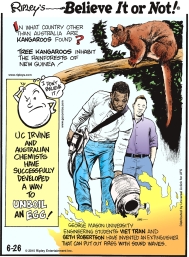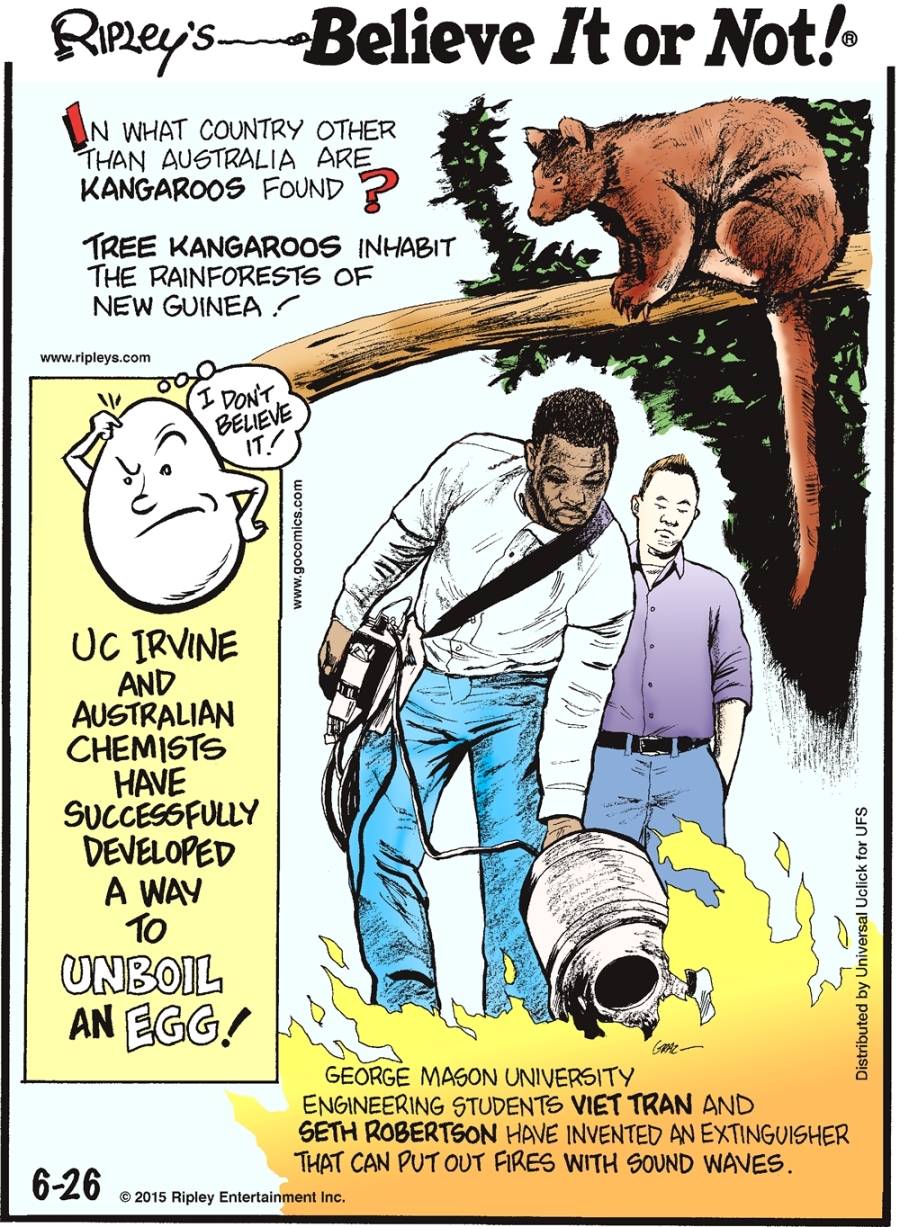Alibaba founder Jack Ma bought 28,000 acres of forestland in the Adirondacks for conservation purposes… While billionaire founders and CEOs conserving land in NY is not new, the fact that a Chinese innovators is there too is interesting. Read the story about Jack and his $23 million dollar buy.
Warby Parker, the hip, social impact oriented eye glass firm founded by Wharton

students has partnered with New York City Public Schools and will provide up to 20,000 pairs of glasses to kids in need.
GMU’s Seth Robertson and Viet Tran were feature in Ripley’s Believe It Or Not Cartoon of the Day for their Wave Extinguisher — it puts out fire with sound waves!
We love Parrot drones at Mason — they are fun for students to learn on. The company announced 13 new drones this week for less than $189! One with a Lego attachment!
Commonbond, an innovative student loan company started at Wharton in 2012, sold its first bonds to Wall Street investors. By targeting specific students and graduates (originally Wharton grads), the firm offers lower rates to lender and loan products with specific attributes to investors.



